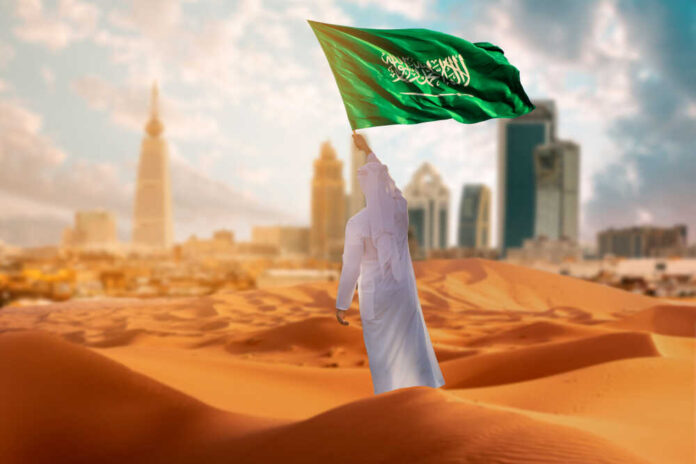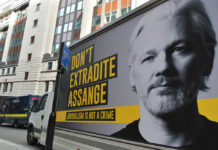A fact-finding expedition to Saudi Arabia was abruptly canceled by a U.S. Congress-mandated delegation in response to public demands that a Jewish rabbi remove his kippah.
Reportedly, U.S. Commission on International Religious Freedom Rabbi Abraham Cooper tried to separate the order over his skullcap from what he saw as advancements in the kingdom’s quiet permitting of diverse religions to pray privately under Crown Prince Mohammed bin Salman’s reign. The practice of publicly displaying religious symbols that are not Islamic is still considered a crime.
On March 5th, the commission and representatives of the U.S. Embassy in Riyadh visited Diriyah, where they had been conducting meetings for almost two days prior. In the village, a Saudi official urged Cooper to take off his kippah (or yarmulke, in Yiddish), a skullcap worn by certain Jews.
A kippah is a traditional Jewish head covering worn by Jewish men, symbolizing reverence for God, and used during various activities such as eating, praying, or entering sacred places.
In response to Cooper’s refusal, the party shortened their stay. It was pointed out that Cooper’s kippah had not caused any trouble at previous public meals or meetings.
After the Hamas terrorist assault last October, Israel began a grinding battle against Hamas in the Gaza Strip, which may explain the present anxiety in Saudi Arabia.
Reports indicate that the UAE and other Gulf Arab governments have become increasingly tolerant of different faiths and practices. In 2020, the UAE and Bahrain signed treaties recognizing Israel as a legitimate state. Abu Dhabi now has a synagogue and a Hindu temple.
However, since Prince Mohammed came to power in Saudi Arabia, the country has developed tolerance at a slower pace. According to a U.S. study on religious freedom, regular and large-scale Christian worship services throughout the kingdom have been without intervention.
A report revealed that Cooper said the US is ready to provide refugee status to four Uyghur Muslims currently detained in Saudi Arabia.
Without addressing the rabbi’s assertion that they may be freed, the US State Department admitted the situation and said it had spoken with Saudi authorities. A return to China may result in the incarceration and torture of Uyghur Muslims.


















